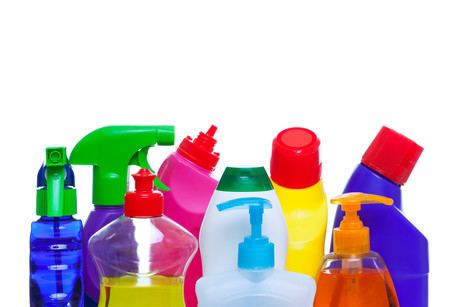1 in 5 Australians chemically sensitive

One in five (18.9%) Australians experience chemical sensitivity, according to new research by the University of Melbourne, with more than one-third (6.5%) medically diagnosed with multiple chemical sensitivities (MCS) suffering health problems from exposure to common chemical products.
Author Anne Steinemann, Professor of Civil Engineering and Chair of Sustainable Cities at the University of Melbourne, is an international expert on environmental pollutants, air quality and health effects.
“Multiple chemical sensitivities is a serious disease that is often caused and worsened by exposure to petrochemical sources such as pesticides, solvents, new building materials and fragranced items,” Professor Steinemann said.
“Even low-level exposure can inflict a range of adverse health effects such as migraines, breathing difficulties, cognitive impairment, seizures and asthma attacks.”
Using an online survey with a national random sample of 1098 people, the study found MCS is widespread in the Australian population, affecting an estimated one million adults nationwide, with chemical sensitivity affecting a further two million.
The study also found 74.6% of people with MCS are asthmatic and 91.5% with MCS report health problems from fragranced products, such as air fresheners and deodorisers, laundry products, candles, cleaning supplies and personal care products.
For 55.4% of people with MCS, the severity of these health problems can be disabling.
In addition, 52.1% of Australians with MCS lost work days or a job in the past year due to illness from fragranced products in the workplace.
The results mirror Professor Steinemann’s earlier research in the United States that found one in four Americans suffer from chemical sensitivity, prompting calls to reduce exposures to everyday chemical pollutants.
“While Australia is not yet at the same levels as the US, it appears we’re on the same pollution path,” Professor Steinemann said. Professor Steinemann recommends choosing products without any fragrance and implementing fragrance-free policies in workplaces, healthcare facilities, schools and other indoor environments.
“The products that are problematic for people with MCS are also major sources of air pollutants. Reducing your use and exposure to these products benefits not only your own and other people’s health, but also the environment,” she said.
The study has been published in the Preventive Medicine Reports journal.
$1bn vaccine and antivenom manufacturing facility opens
A $1 billion cell-based influenza vaccine and antivenom manufacturing facility has opened in...
National concussion clinical guidelines now available
The first Australia- and New Zealand-specific guidelines for all forms of concussion — from...
Doctors criticise "risky prescribing agenda"
The AMA and RACGP have expressed disappointment in the Pharmacy Board of Australia's...




![[New Zealand] Transform from Security Awareness to a Security Culture: A Vital Shift for SMB Healthcare — Webinar](https://d1v1e13ebw3o15.cloudfront.net/data/89856/wfmedia_thumb/..jpg)
![[Australia] Transform from Security Awareness to a Security Culture: A Vital Shift for SMB Healthcare — Webinar](https://d1v1e13ebw3o15.cloudfront.net/data/89855/wfmedia_thumb/..jpg)




